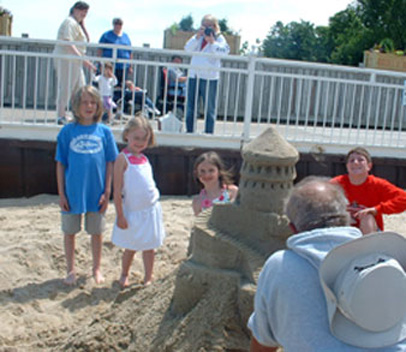Over a year ago I finished a long analysis of Grassroots Dayton by mumbling “I want to suggest some workable answers to that question in future posts.” The question, I deferred answering, is how do we accomplish our purpose — to vitalize democracy? To this post Gary Steiger replied and made the observation, “Lacking is the engine to move it forward.”
I’m thinking that if this engine is ever to get started, now is a good time. I report here that according to David Matthews of the Kettering Foundation, to improve education we must improve our democracy. We need a more engaged, more informed, more active public. Every local school district this November has local school board elections, so this seems a big grassroots opportunity. Deadline for returning a petition to get on the ballot for a local school board position is August 19. We have all of July plus some to line up new slates of school board candidates. I believe that there is a public who would eagerly welcome the chance to discuss public education and its future, and positively engage those who are willing to serve on the local board of education.
Here is what I propose to do:
- Create literature explaining the goals of a subgroup, Grassroots Kettering, that would be appropriate for door-to-door solicitation.
- Solicit “community organizers” to help achieve Grassroots Kettering goals.
- Solicit community organizers to create parallel groups in other school districts — Grassroots Centerville, Grassroots Northmont, etc. — and using same material as Grassroots Kettering, print door-to-door literature for each group interested in forming.
- Find a responsible person who will serve as administrator for each local group and local cadre of “community organizers” in each local group.
I’m thinking door-to-door literature might ask questions like these:
- Would We Be A Better Community — If We Communicated Better With Each Other?
- Would We Be A Better Community — If Ours Was A More Vigorous Democracy?
- Could Public Education Be Greatly Improved — If Our Was A More Vigorous Democracy?
- Would We Have A Better Future — If Our Democracy Was Vitalized?
Most people, I feel, agree that our democracy is not working very well. I reported here that when I asked a group, “On a scale of zero to 100, to what degree do we have a government of the people, by the people and for the people?”, the average of the answers to that question was 40%.
If someone could be engaged in discussion, the idea would be to ask them to fill out
A questionnaire, with these types of questions:
- Name, Address, phone number, e-mail address
- A good citizen is an informed citizen, yet most of us know very little of what is happening in local or state government. Would you like to have easy access to effective reporting about all levels of government?
- Would you consider becoming an active member of a nonpartisan group, Grassroots Kettering, dedicated to vitalizing grassroots democracy?
- Would you consider joining a Grassroots Kettering Facebook group?
- Would you consider running for Kettering School Board?
- Do you know anyone who you would like to see run for Kettering School Board?
- Would you like to see the community have an in-depth discussion about the future of Kettering Schools, such as, “Where are we headed in ten years?”
- Would you attend a locally held neighborhood meeting to meet school board candidates?
- Would you consider buying a chance or buying from this list of products to support the action plan proposed by Grassroots Kettering?
- Would you consider working as a “community organizer” for Grassroots Kettering?
- Would you consider working as a board member for Grassroots Kettering?
Funds Raised by Grassroots Kettering Will Be Used:
- Informal Neighborhood Meetings — Meet the Candidates (School Board)
- One mailing to all Kettering voters to publish candidate’s answers to questions
- District wide meetings (2 or three) on the general topic of Kettering Public Education in 2020
- Sponsoring the forming of a “Democracy Club” at Kettering High School
- Stipends and monetary prizes for development of videos focused on local and state representatives.
- Stipends and monetary prizes for articles involving in-depth research — often defined in an Request for Proposal (RFP) process
- Starting and Maintaining a local web-site
My idea is that the “Democracy Club” would be a video club — with the emphasis on creating short news type videos and longer type documentaries — creating informative videos concerning matters of local interest, especially those dealing with local government agencies and elected officials. A stipend could be available for an RFP requesting a video production on a specific issue or question. These videos, then, would be the source of news on the Grassroots Kettering web-site, which in turn would be linked to DaytonOS.
All of this needs more explanation.
What I would like is to be able to offer the job of “community organizer” to qualified individuals, including high school and college students, for say $12 or $15 per hour. I’m wondering if such an offer could be made contingent upon money raised? I’m hoping there are those who will find this interesting enough to begin without any promise of compensation.
Anyway, my personal goal is to put at least 200 hours into this project, between now and August 5, and see what happens.

























